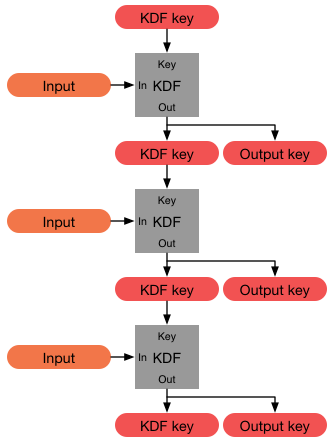
Forward secrecy - Wikipedia
In cryptography, forward secrecy (FS), also known as perfect forward secrecy (PFS), is a feature of specific key-agreement protocols that gives assurances that session keys will not be compromised even if long-term secrets used in the session key exchange are compromised, limiting damage. For HTTPS, the long-term secret is typically the private key of the server. Forward secrecy protects past sessions against future compromises of keys or passwords. By generating a unique session key for every session a user initiates, the compromise of a single session key will not affect any data other than that exchanged in the specific session protected by that particular key. This by itself is not sufficient for forward secrecy which additionally requires that a long-term secret compromise does not affect the security of past session keys.
Forward secrecy protects data on the transport layer of a network that uses common transport layer security protocols, including OpenSSL,[ 1] when its long-term secret keys are compromised, as with the Heartbleed security bug. If forward secrecy is used, encrypted communications and sessions recorded in the past cannot be retrieved and decrypted should long-term secret keys or passwords be compromised in the future, even if the adversary actively interfered, for example via a man-in-the-middle (MITM) attack.
























